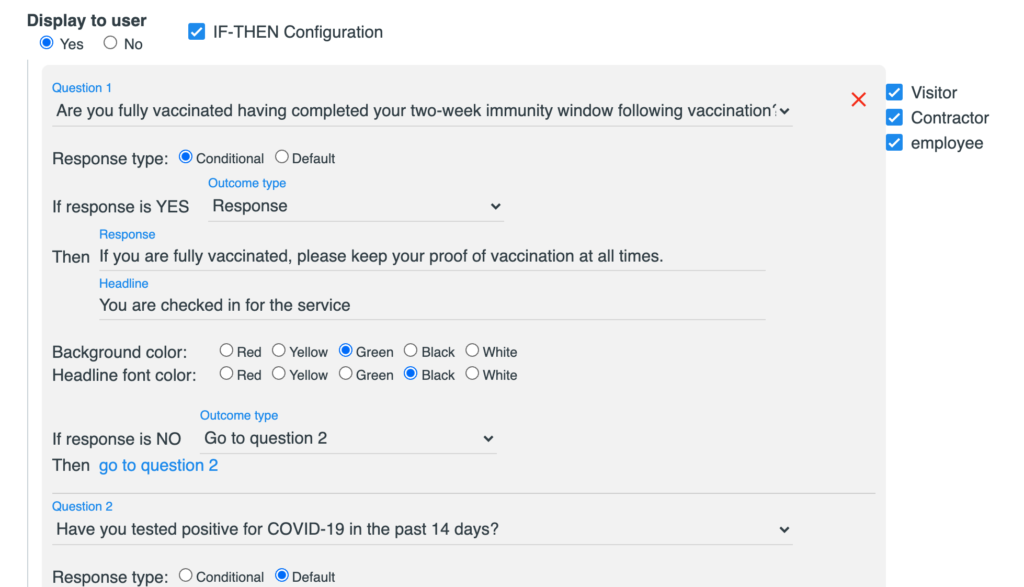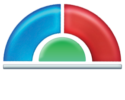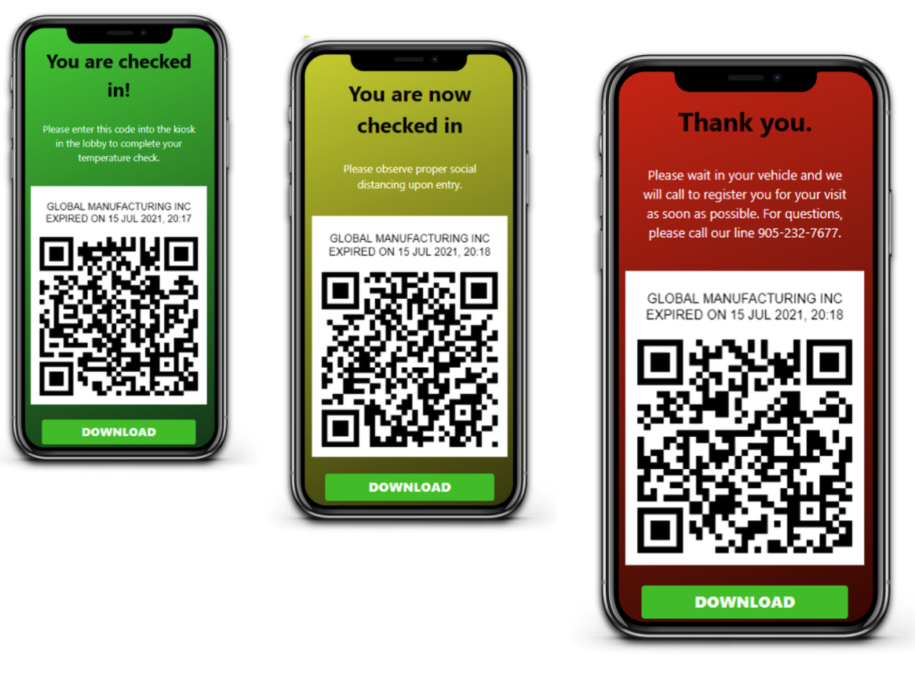When an individual is completing a questionnaire via a COVID 19 screening app, not every question is black and white. For this reason, including if-then statements are useful. This integration will help to remain organized in the post-pandemic future of work. If-then statements essentially imply, “if this happens, then that will happen;” a hypothesis followed by a conclusion.
The pandemic is gradually evolving and employees are returning to the new era of work. As usual, organizations have a responsibility to protect their staff. Now, businesses must follow government regulations regarding screening onsite. Many states require a screening strategy for employees, such as California and Nevada. This process is not always straightforward to implement because COVID-19 can emulate other health issues.
The allergy season is typically from May to July. During this time, workers may experience symptoms such as a stuffy nose. This is when if-then statements can be beneficial. If-then statements ensure that honest answers are provided during employee screening. Also, companies can better understand the real health issue at hand. MyLobby’s app can define and automate if-then statements for your company. This leads to a more accurate COVID 19 screening app procedure and an overall safer workplace.
COVID 19 Screening App and Vaccination Status
With vaccinations well underway, it is possible to understand the current state of employee vaccinations in a workforce. For further health and safety, some employers may implement vaccination policies to prevent the spread of COVID-19. Organizations can collect vaccination data using a COVID 19 screening app. This may include yes/no questions regarding vaccination (along with proof of documentation). Furthermore, the administration date and which vaccination was given would be crucial to know. In this scenario, for instance, it would be important to not assume that an employee is unvaccinated if they answer “no” to being fully vaccinated. The individual could be in the process of receiving their second dose; thus, an if-then statement would be helpful.
Within the dashboard, departments such as human resources can oversee employees’ vaccination status. This can even help for logstics regarding business travel; for instance, Canada will be easing travel restrictions for vaccinated Americans. Altogether, this information helps with company planning and demonstrates to employees the preparedness of a workplace.
COVID 19 Screening App and Colour Codes
As a pioneer within the employee management space, MyLobby continuously aims to automate compliance in a modern manner. The newest amalgamation includes different colour codes (i.e., red, yellow, green) during employee screening. Clear instructions can be provided for each status. Customization of the interface is possible for any company (i.e., background colour, font colour).
If an employee is green and allowed entry, a number can be generated to input into the temperature screening device. As usual, an email and SMS notification is sent to compliance personnel and department heads. This is particularly when answers are non-compliant based on yes/no questions.
The following outlines a detailed example scenario for colour codes. A key question would include asking if someone has been diagnosed with COVID-19 in the past 20 days. A “yes” would indicate red to prevent entry, whereas a “no” would lead to the next question.
The subsequent question could entail asking about being fully vaccinated for at least 14 days. In this case, a “yes” or “no” would lead to the last question. This question would be related to COVID-19 symptoms, such as a fever. For vaccinated individuals, a “yes” to any symptoms would indicate yellow as a caution. A “no” would indicate green and conclude the person can enter. For unvaccinated individuals, a “yes” to any symptoms would lead to the final question(s), such as participating in a mass gathering or returning from travel in the past 14 days. On the other hand, a “no” would indicate green and be considered compliant. A “yes” or “no” to the previous question(s) regarding employee activity would either lead to a red or yellow, respectively, for extra safety.
Benefits of MyLobby’s Personalized Questionnaires
Customization within the COVID 19 screening app is entirely possible. For instance, corporations could ask about travel to non-contiguous states. The process can be consolidated with more concise questions to be faster, while still ensuring security. MyLobby is able to alter the back-end to ensure workplace guidelines align in case the pre-set framework does not apply to a company.
MyLobby’s job is to help make a corporation’s people flow easier and efficient. Best of all, internally on the website, the questionnaire can be customized on a whim. If-then statements can be “conditional” or “default” questions; i.e., “if a response is YES/NO, then…”.

MyLobby Takes Colour Coding to a Whole New Level of Efficient
Now imagine, when answering “yes” to any COVID-related symptoms, a red category is not immediately assigned. This is because the next question asks about having pre-existing medical conditions, such as allergies or migraines. In many cases, anxiety can even cause an individual to feel physically sick on some days.
It is simply inaccurate to assume an employee is not compliant based on generic symptoms during employee screening. With a follow-up question regarding why the symptoms are present, clicking “yes” can assign the employee as yellow, where the individual is still admissible. The risk levels of different employees can be determined with information derived from COVID 19 screening apps. It further allows for rapid contact tracing if required. Managers can even check in with the employee about their well-being, which overall supports corporate wellness.
More Examples of If-Then Statements Related to Questionnaires Within COVID 19 Screening Apps
As air travel begins to increase and borders reopen, it would be important to differentiate air/bus/train travel from car travel. In denser environments with poor ventilation, conditions for transmission could be more dangerous.
Moreover, when asking if an individual has been in close contact with a person with new respiratory symptoms, again, it would be important to understand if the third party individual has actually tested positive for COVID-19. A “fail” from answering “yes” to any of these questions could result in an employee being unnecessarily ordered to go home. This results in less staff and directly affects the workflow.
Furthermore, in a hospital setting, instructions for red or yellow could prompt individuals to wait in their car to receive a call for when to be registered. To begin with, many people do not prefer sitting in the waiting room. If-then statements provide the ability to assess risks, especially in healthcare environments. Risk cannot be fully mitigated here as patients need to be seen by doctors.
Hire MyLobby to Better Communicate With Your Employees, Without Direct Contact
The new COVID-19 concerns are especially surrounding the Delta variant. As employees return to the office, more individuals will flock together to socialize and collaborate. It is important to recognize that the coronavirus is continuing to spike in the US, and organizations need a long-term solution for screening, such as COVID 19 screening apps. Although new technology may seem like a vast change to take on, a company can start by creating a flow chart that demonstrates the walkthrough of a screening process with if-then statements and colour coding. MyLobby is also able to help with this to offset the challenges that workplaces may endure in different scenarios as more employees return to work. Get in touch today to try our system for free for employee screening!

